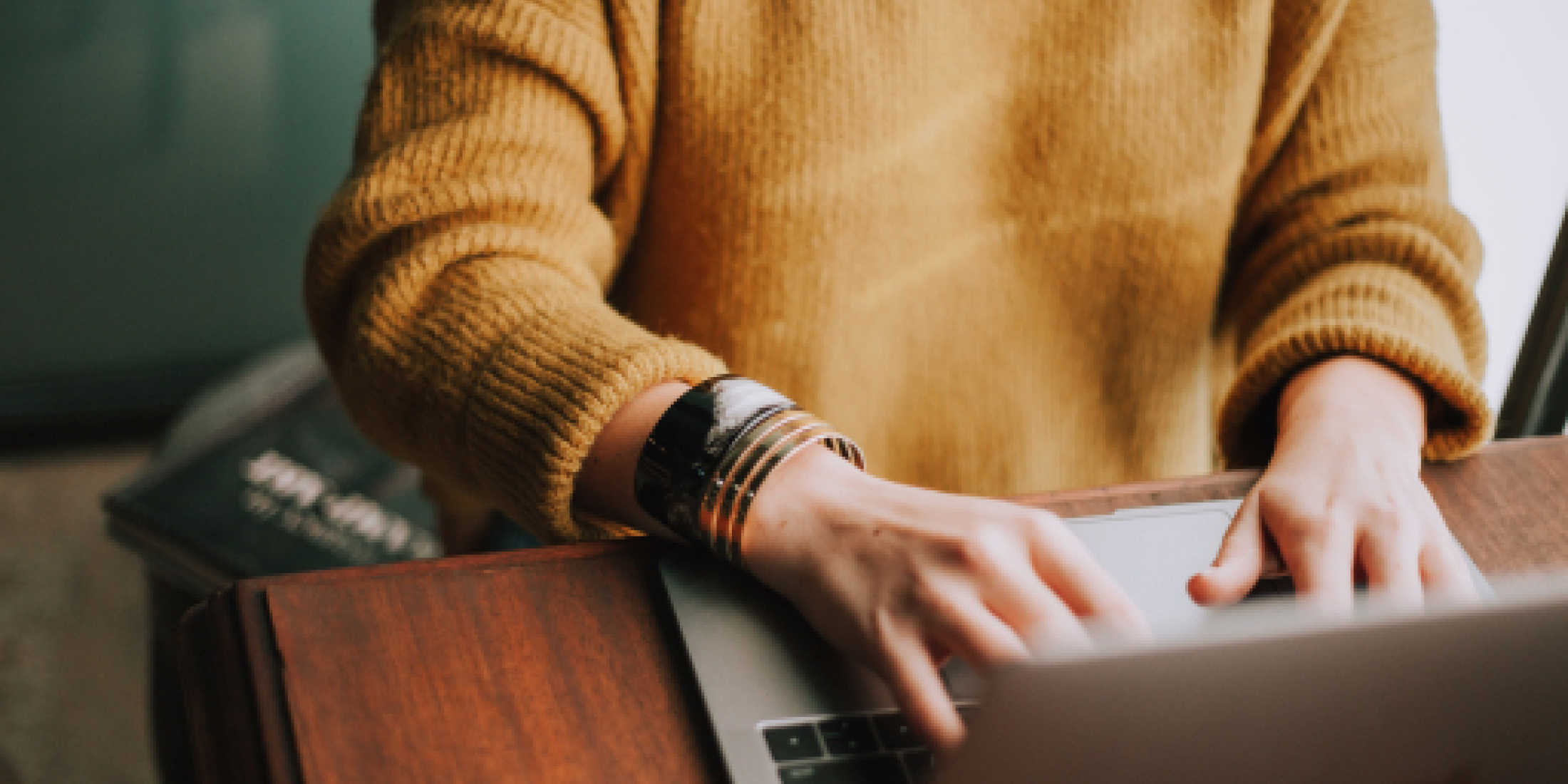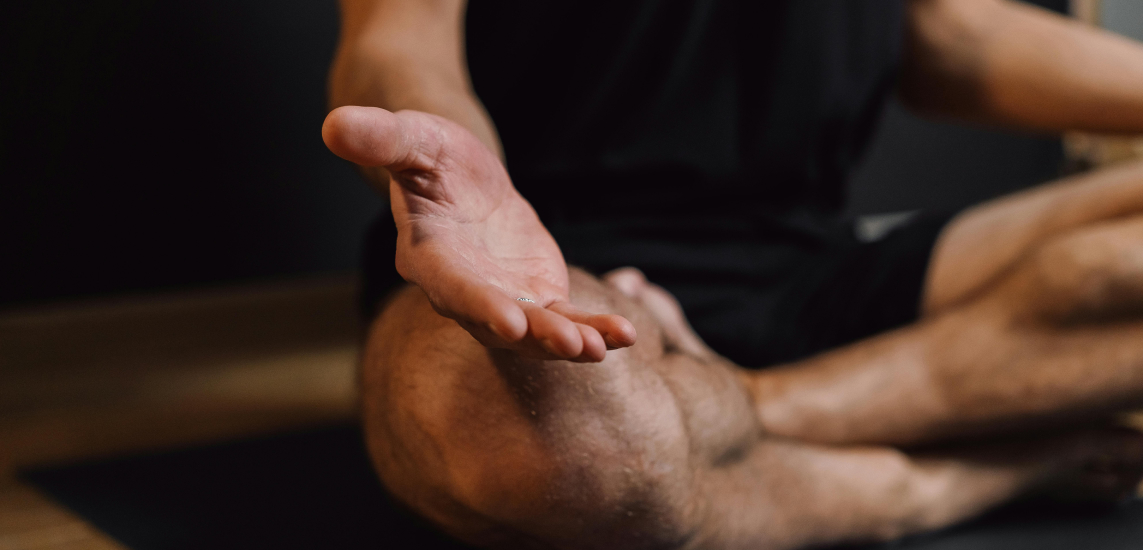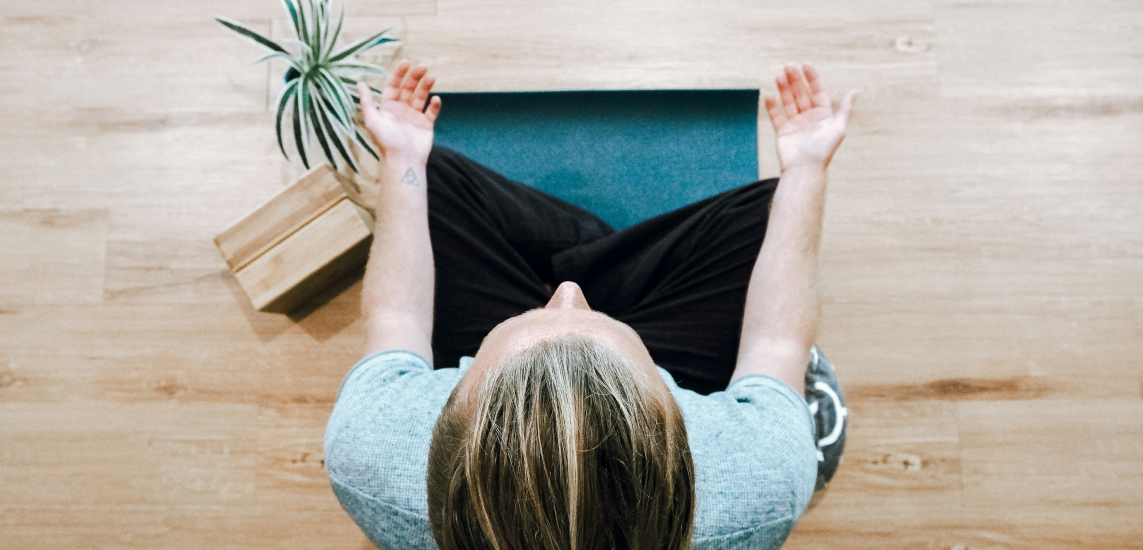To prevent burnout from overworking while home, boundaries must be set. Practicing mindfulness and meditation builds the confidence needed to set clear boundaries, ease the symptoms of stress and baby step your way to a more balanced work and home life.
Overcome Overworking With Meditation
Meditation Builds Awareness
Meditation begins with awareness. We cannot change that which we don’t notice. By becoming aware of your own personal work habits, and the related stress, you open your eyes to areas that need work. Awareness brings clarity regarding what it is that we can and cannot control. Meditation can be as simple as closing your eyes and asking yourself, ‘how am I feeling right now?’ Turning attention inward with open curiosity can be a profound, and stress relieving, act.
Did you know? Present-moment awareness is associated with improved responses to stress.
Meditation Creates Time
When we’re overworked we have little time for anything else and certainly no time for meditation. But make time for meditation, even just five minutes per day, and you’ll soon notice there’s more time available. Taking action to schedule activity outside of work can help solidify boundaries around what the work day is. Start with a morning meditation and you may soon feel comfortable powering down your computer when the official workday ends. In another article, we dive deeper into time famine and how meditation helps to make time feel more abundant.
Did You Know? Workers with greater boundary control tend to negatively ruminate less.
Make some time right now with these popular workday meditations:
- Breathing Meditation UCLA Mindful Awareness Research Center 5:31
- Mindful Arrival Jason Luk 5:01
- Just Notice And Name Lee David 8:31
- Before Logging On Mick Timpson 8:43
- Focus On Calm By Releasing Tension Brian Lowell French 8:45
- Lunch Break Relaxation Nikki Rhodes 11:12
- From Stress To Calm Tomek Wyczesany 20:11
- Find Your Focus: For The Easily Distracted Matthew Young 26:14
- Balancing Being & Doing Lou Redmond 29:32
Meditation Creates Space
Carving out physical space for meditation means setting aside a sacred area in your home where work does not take place. Designating a physical work-free space is one real way in which we can further create boundaries. Try the same with your devices. When it’s time to meditate, turn off ringers, notifications and alerts. Practice giving yourself that disconnection for five minutes per day and then watch as your desire and willingness to expand that time strengthens.
Did You Know? Mindfulness directly conquers fear of missing out, making it easier for you to disconnect from your smartphone.
Meditation Strengthens Confidence
Meditation practices are often connected to dropping the ego and losing our sense of self. But to let go of the self, we must first understand what the self is. Through meditation, we build an understanding of how our own minds work, what our window of tolerance is, and what we need to be healthy and happy. This enables healthy boundary setting. It’s not until we have a confident sense of self that we can soften comparisons to others and let go of the need to compete.
Did You Know? Self-awareness is required for building self-esteem. Deepen awareness and you’ll build greater confidence.
Meditation Reduces Reactivity
When we’re overworked and stressed everything becomes equally urgent and needs an immediate response. We have trouble differentiating fact from fiction as the stories we create grow hand in hand with our stress. A meditation practice teaches us to become less reactive by creating distance between the stories and the storyteller, or our thoughts and their witness. We learn not to believe everything we think, and we find greater peace.
Did You Know? Those who meditate experience less subjective anxiety in response to stress.
Alleviate Stress, Welcome Balance
Randomized controlled trials show those who meditate report fewer symptoms of stress, have an increased sense of control in their life, and equally feel more comfortable with acceptance and letting go. When it comes to work life and home life balance, all of it is life, and it’s up to us to use ours wisely. Mindfulness and meditation can equip us to confidently make use of each moment in this life in a way that supports and sustains us.
Read more: Discover the 6 elements that should be part of every remote worker’s toolkit.



-1.jpg)



